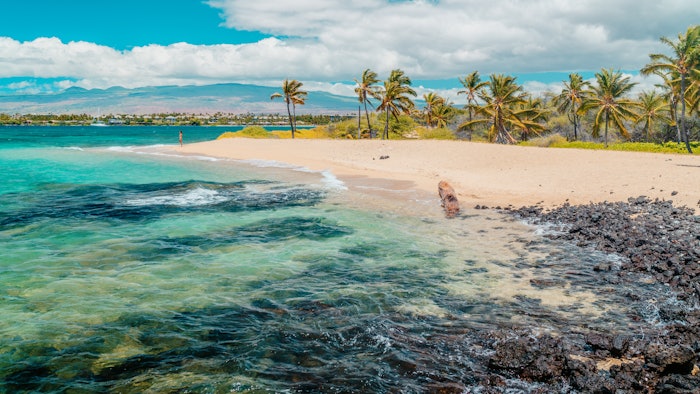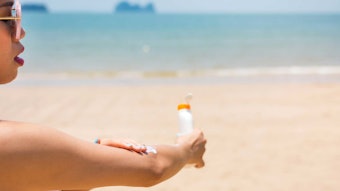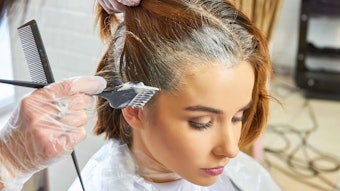
Big Lots is currently facing a class action lawsuit over its Sound Body sunscreen that contains ingredients alleged to harm coral reefs — despite the products being advertised as “reef conscious.” According to Top Class Actions, the ingredients in question are avobenzone, octocrylene, octisalate and homosalate, which are currently not banned anywhere in the U.S.
Log in to view the full article
Big Lots is currently facing a class action lawsuit over its Sound Body sunscreen that contains ingredients alleged to harm coral reefs — despite the products being advertised as “reef conscious.” According to Top Class Actions, the ingredients in question are avobenzone, octocrylene, octisalate and homosalate, which are currently not banned anywhere in the U.S.
Related: Walmart, Target Flagged for 'Deceptive' Reef-friendly Sunscreen Claims
Sunscreens are a hot topic all across the industry, garnering 1.4 million posts on TikTok and 4.2 million posts on Instagram under #sunscreen. Within the realm of influencers and sunscreens exists a fair amount of fearmongering. CNN recently published an article detailing a number of posts made by TikTok influencers, one outright stating "stop wearing sunscreen."
This is not a secluded case. Venturing into sunscreen related TikToks, it becomes apparent that misinformation is rampant. Many large accounts (500,000+ followers) argue against the use of sunscreens. Many of these accounts discuss two ingredients banned by Hawaii.
Hawaii is often cited when "reef-safe" claims come into question, given it was the first state in the U.S. to ban the sale of sunscreens containing oxybenzone and octinoxate, two additional ingredients often found in sunscreen, per Hawaii.com. The law went into effect Jan. 1, 2021.
Laura Lam-Phaure, founder and president of Lam Phaure Beauty, authored a Formulating on Trend in 2022 that discussed how to formulate reef-safe sunscreen in relation to the ban in Hawaii.
"The term "reef-safe" sunscreen is largely a marketing gimmick, endorsed by the Hawaiian government, which has instilled unnecessary fear in consumers. In my article, I discuss how to formulate sunscreens to meet the "reef-safe" marketing label. However, I believe that sunscreens are not the primary cause of coral bleaching in the oceans. The debate between organic and inorganic UV filters shows that neither type is definitively better for the environment. Scientific evidence indicates that UV filters do not significantly contribute to coral reef bleaching; instead, rising water temperatures due to climate change are the main culprit. Studies suggesting that certain organic UV filters cause coral bleaching were conducted under unrealistic conditions. Similar results could be achieved with inorganic UV filters under the same conditions. These studies do not accurately reflect how humans use sunscreen in real-life scenarios, making it unlikely that sunscreen use is a significant factor in coral reef degradation."
Sunscreens are regulated as drugs in the United States, so they fall under the watch of the U.S. Food and Drug Administration (FDA). The agency issued a "final deemed order" in 2022 that did not ban any of the aforementioned ingredients. § M020.10 Sunscreen active ingredients states that "the active ingredient of the product consists of any of the following, within the concentration specified for each ingredient, and the finished product provides a minimum sun protection factor (SPF) value of not less than 2 as measured by the testing procedures established in § M020.80," which included all above ingredients.
While these ingredients are not banned in any state or by the FDA, whether they can be labeled as "reef-conscious" is questionable. Per the lawsuit, the term itself is ambiguous, citing the federal Pure Food and Drug Act of 1906, which outlines requirements for businesses to use “honesty and fair dealing” in advertising products and their ingredients.
Spencer Sheehan, attorney, Sheehan & Associates, discusses how these ambiguous claims are dangerous to consumers.
"The FTC — the government agency that is tasked with ensuring a fair marketplace for the public — has said numerous times over the hundred years or so that it has been in existence that companies should not make claims for which they don't have factual support. This is something, unfortunately, that continues to be an issue, not just in respect to cosmetics and personal care products but a variety of products and services sold to consumers."
Sheehan continues.
"The immediate harm is that consumers are misled to buy something that’s not what it claims, but more significantly and obviously is that such products are indeed harmful to reef ecosystems are not reef safe and most significantly it causes the public to think that what they’re doing is indeed helpful and to preserve these incredible ecosystems and to not take actions that might actually be helpful."
The lawsuit filed against Big Lots is one of several filed this year against large companies making ambiguous claims in sunscreens. Read the interview here.










